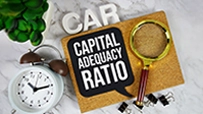6 Ways Mr. X Raised His CIBIL Score from 500 to 750
May 06, 2025

In India, more than 79% of loan approvals are granted to individuals with a credit score of 750 or above, according to CIBIL’s – one of the largest credit bureaus responsible for collecting and maintaining credit-related data of individuals and businesses - latest insights. Yet, a large segment of credit users—especially first-time borrowers or those who faced financial setbacks during COVID—find themselves stuck at the wrong end of the spectrum.
Take Mr. X, for instance. After losing his job in 2021, he defaulted on a couple of EMIs. Today, his credit score hovers around 500. He dreams of owning a car, maybe even a home someday, but each loan application ends in rejection. Why? Because banks see a CIBIL score of 500 as risky.
But here’s the good news: a low credit score is not a life sentence. With discipline and the right financial strategy, it's possible to climb from 500 to 750—and unlock a world of financial opportunities.
Mr. X’s Journey from 500 to 750: A Story of Financial Discipline
Step 1: Understanding Why the Score Dropped
Before Mr. X could fix his score, he had to identify what went wrong. His credit report revealed:
Step 2: Paying Off Overdue Balances
The first thing Mr. X did was clear all outstanding dues, starting with smaller balances. He then set up auto-debit for future EMIs to ensure timely payments.
Step 3: Reducing Credit Utilisation
He requested a credit limit increase on his card—but didn’t use it. Instead, he ensured his monthly usage stayed below 30% of the limit, which positively impacted his credit score.
Step 4: Avoiding New Credit Applications
Mr. X resisted the urge to apply for new loans or credit cards. Every hard inquiry drops your score slightly, and multiple inquiries can signal desperation to banks.
Step 5: Becoming an Add-On Cardholder
Mr. Y, a friend with a strong credit history, added Mr. X as an authorised user on his credit card. This move allowed Mr. X to benefit from Mr. Y’s good credit behaviour without taking on new debt himself.
Step 6: Monitoring Progress
Within 6 months, Mr. X’s score rose to 620. By the end of 12 months, it touched 710. In 18 months—with no missed payments, low utilisation, and no fresh loans—it hit 750.
Benefits of Having a Good CIBIL Score
Mr. X isn’t just happier—he’s financially empowered. Here’s why improving your credit score matters:
1. Better Loan Approval Rates
A high credit score—typically 750 or above—signals strong creditworthiness. Banks see you as a low-risk borrower, which significantly increases your chances of loan approval across products like home loans, bike loans, and business loans. Unlike those with poor scores who often face rejection or delays, you’re more likely to get faster approval with minimal documentation.
2. Lower Interest Rates
Banks and NBFCs often reward high-score individuals with preferential interest rates, especially on big-ticket loans. Over a 20-year tenure, this could mean substantial savings on interest payments.
3. Higher Credit Limits
If your credit history shows responsible usage, banks are more willing to increase your credit card or loan limits. This gives you better financial flexibility, especially during emergencies. Higher limits can also help maintain a low credit utilisation ratio, which in turn further improves your credit score.
4. Negotiation Power
A good credit score puts you in control when negotiating terms. You can ask for reduced interest rates, longer repayment periods, etc. Banks are more likely to accommodate your requests to retain a high-quality customer, subject to terms and conditions.
5. Quick and Seamless Approvals
When your CIBIL score is excellent, pre-approved loans and instant credit offers become the norm.
Final Thoughts
Improving your CIBIL score from 500 to 750 is a marathon, not a sprint. Like Mr. X, if you understand the rules of credit, practice financial discipline, and make informed decisions, you can completely turn your credit profile around. In a world driven by creditworthiness, that three-digit number might just be your most powerful asset.
Need a bike or home loan but concerned about low CIBIL score? Walk in to your closest Ujjivan Small Finance Bank branch, know your loan eligibility and apply for affordable loans. Our executives would be more than happy to address all your queries.
Disclaimer:
The contents herein are only for informational purposes and generic in nature. The content does not amount to an offer, invitation or solicitation of any kind to buy or sell, and are not intended to create any legal rights or obligations. This information is subject to updation, completion, amendment and verification without notice. The contents herein are also subject to other product-specific terms and conditions, as well as any applicable third-party terms and conditions, for which Ujjivan Small Finance Bank assumes no responsibility or liability.
Nothing contained herein is intended to constitute financial, investment, legal, tax, or any other professional advice or opinion. Please obtain professional advice before making investment or any other decisions. Any investment decisions that may be made by the you shall be at your own sole discretion, independent analysis and evaluation of the risks involved. The use of any information set out in this document is entirely at the user’s own risk. Ujjivan Small Finance Bank Limited makes no representation or warranty, express or implied, as to the accuracy and completeness for any information herein. The Bank disclaims any and all liability for any loss or damage (direct, indirect, consequential, or otherwise) incurred by you due to use of or due to investment, product application decisions made by you on the basis of the contents herein. While the information is prepared in good faith from sources deemed reliable (including public sources), the Bank disclaims any liability with respect to accuracy of information or any error or omission or any loss or damage incurred by anyone in reliance on the contents herein, in any manner whatsoever.
To know more about Ujjivan Small Finance Bank Products Visit:"https://www.ujjivansfb.in"
All intellectual property rights, including copyrights, trademarks, and other proprietary rights, pertaining to the content and materials displayed herein, belong
to Ujjivan Small Finance Bank Limited or its licensors. Unauthorised use or misuse of any intellectual property, or other content displayed herein is strictly prohibited and the same is not intended for distribution to, or use by, any person in any jurisdiction where such distribution or use would (by reason of that person’s nationality, residence or otherwise) be contrary to law or registration or would subject Ujjivan Small Finance Bank Limited or its affiliates to any licensing or registration requirements.
FAQs
1. How long does it take to improve a CIBIL score from 500 to 750?
It typically takes 12 to 18 months of consistent financial discipline—timely payments, low credit utilisation, and no defaults.
2. Can I improve my credit score without taking a loan?
Yes. Using a credit card responsibly (and repaying in full every month) is one of the best ways to improve your credit score without taking a loan.
3. Does checking my own credit score lower it?
No. Soft inquiries (when you check your own score) do not impact your credit score. Only hard inquiries by banks do.
4. What is the ideal credit utilisation ratio?
Keep your monthly usage below 30% of your total credit limit. For example, if your limit is ₹1,00,000, spend no more than ₹30,000.
5. Can a CIBIL score of 500 get me a loan?
It’s difficult. Some NBFCs might offer loans at high interest rates, but it’s best to improve your score before applying to avoid rejection and unnecessary inquiries.
Latest Blogs

Banking Safety Guide: How to Avoid QR Code Frauds While Making Payments
India’s love for QR code payments has made transactions lightning-fast, but also opened a new front for cybercriminals.

Scam Alert! Phishing, Vishing, and Smishing Can Drain Out Your Finances
Digital banking in India has transformed the way we manage money.

India’s New GST Reform Bill: What GST 2.0 Means for You
India’s indirect tax system is entering a landmark new phase.

Capital Adequacy Ratio (CAR): Meaning, Formula, and RBI Norms
Banks run on trust — but trust alone cannot guarantee stability. A sudden surge in bad loans or a market shock can quickly weaken even the largest institutions.

ITR Filing Penalties: What You’ll Pay in Fees, Interest, and Compliance Costs
The Income Tax Department extended the ITR filing deadline for FY 2024–25 to September 15, 2025, giving taxpayers a second chance after the original due date lapsed.


